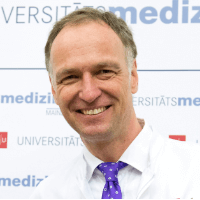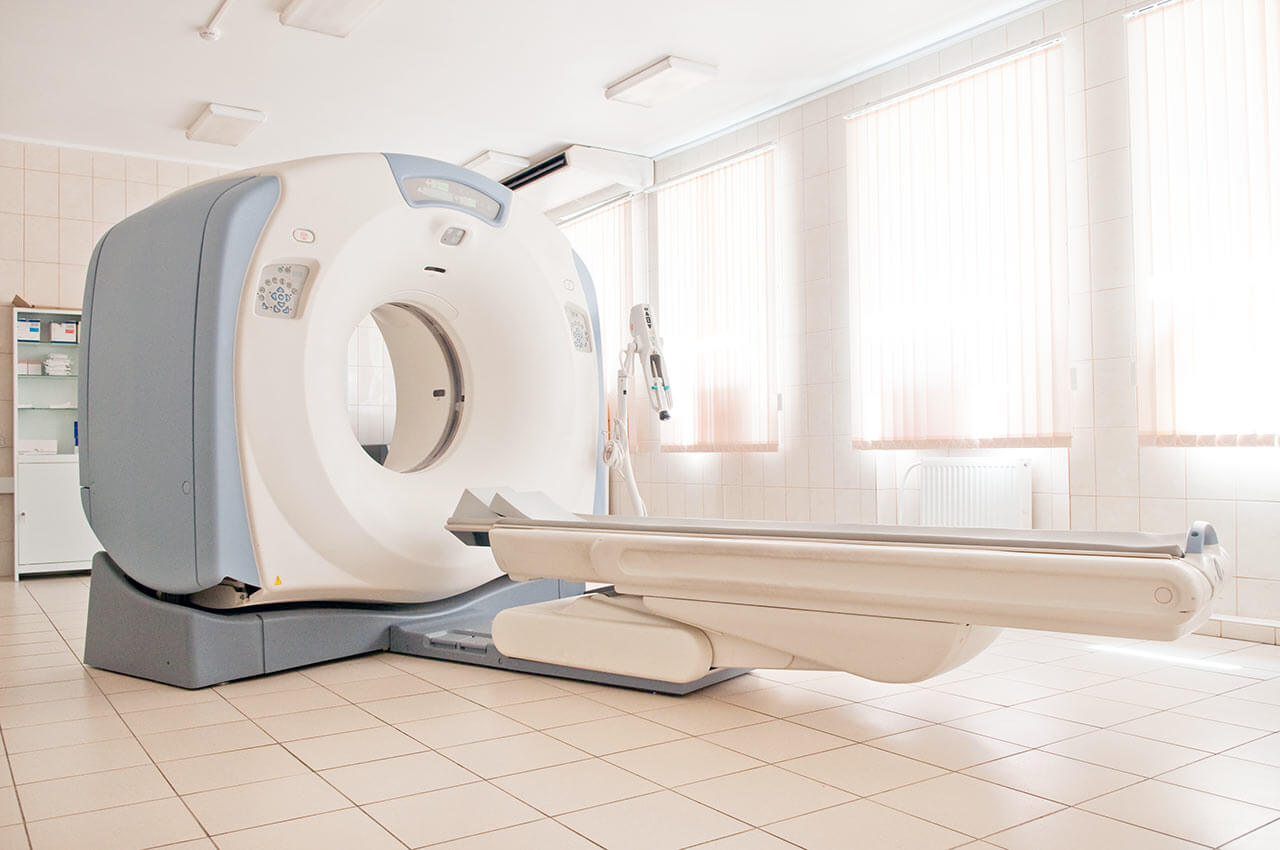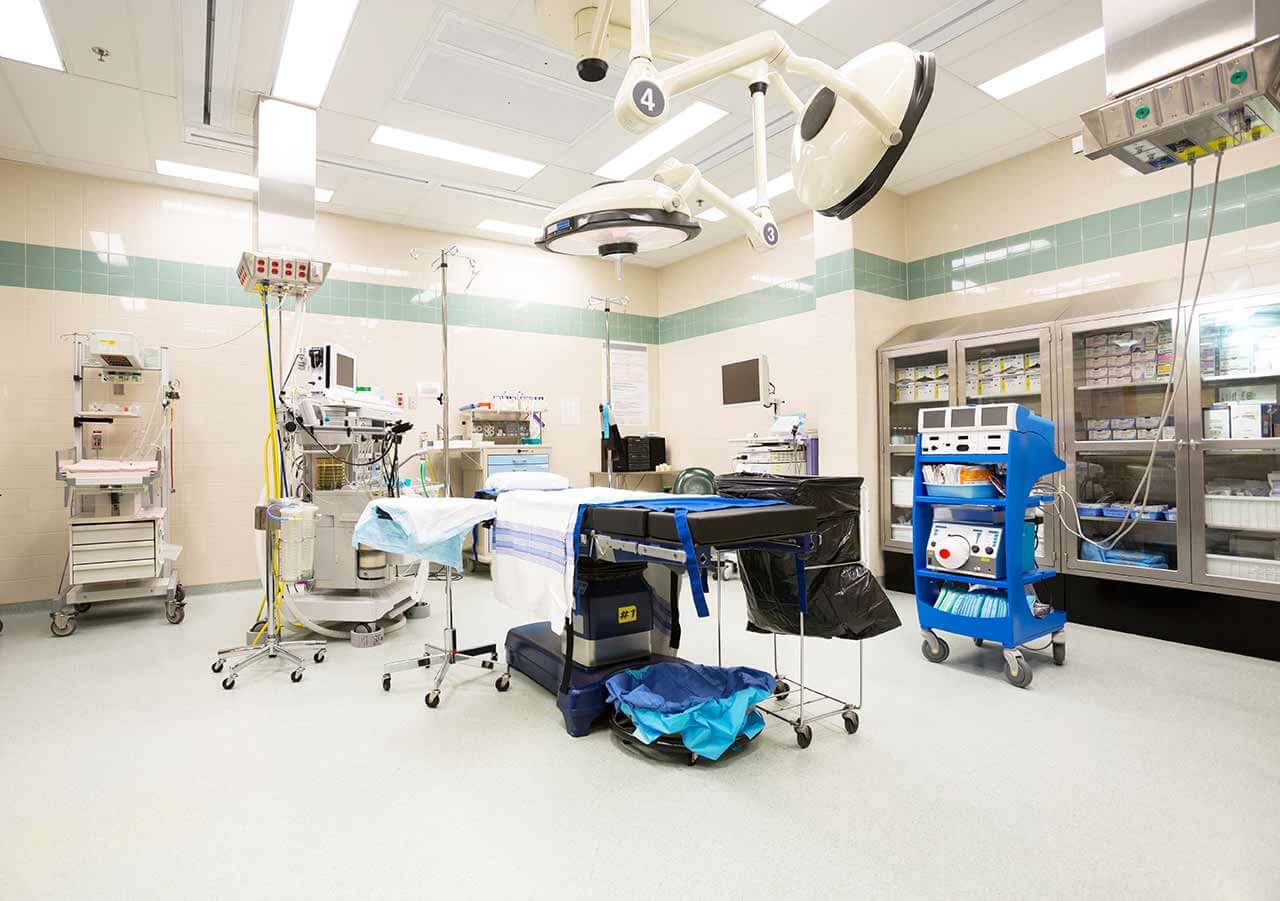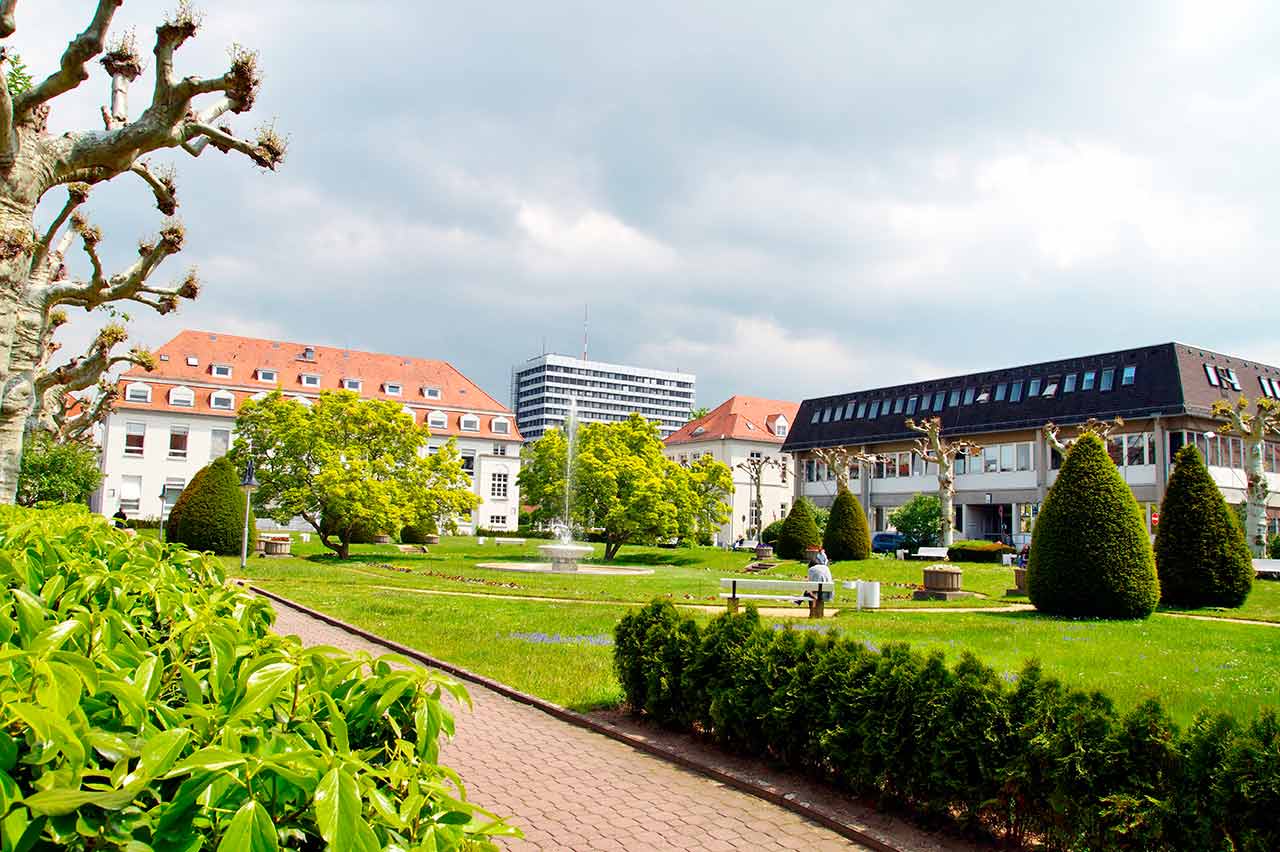
The program includes:
- Initial presentation in the clinic
- clinical history taking
- review of medical records
- physical examination
- laboratory tests:
- complete blood count
- biochemical blood analysis
- inflammation indicators (CRP, ESR)
- indicators blood coagulation
- blood gas analysis
- chest x-ray examination
- measurement of arterial blood pressure
- electrocardiogram (ECG)
- high-resolution computed tomography (HRCT) (on indication 1000 €)
- pulmonary function test
- nursing services
- consultation of related specialists
- consultation of the chief physician and all leading experts
- development of individual treatment plan
- written statement
Required documents
- Medical records
- Laryngoscopy, bronchoscopy (if available)
- CT scan (if available)
Service
You may also book:
 BookingHealth Price from:
BookingHealth Price from:
About the department
The Department of Adult and Pediatric Otolaryngology, Head and Neck Surgery at the University Hospital Mainz offers the full range of diagnostic and therapeutic services in these fields. The main areas of specialization include cancer treatment, cochlear implantation, treatment of hearing and speech disorders, diseases of the nose, paranasal sinuses and salivary glands, as well as medical care in allergic diseases and sleep-related breathing disorders. Also, the department’s scope of tasks includes plastic and reconstructive surgery of the face and neck. The department is headed by Prof. Dr. med. Christoph Matthias.
The service range of the department includes:
- Diagnostics and treatment of head and neck cancers
- Diagnostics
- Ultrasound examinations
- Endoscopic examinations
- Therapy
- Surgical treatment
- Chemotherapy
- Radiation therapy
- Immunotherapy
- Targeted antibody therapy
- Adjuvant therapy
- Subsequent monitoring of treatment results
- Diagnostics
- Diagnostics and treatment of diseases of the nose and paranasal sinuses (for example, recurrent and chronic inflammation of the nose and paranasal sinuses, impaired sense of smell)
- Cochlear implantation for congenital and acquired hearing impairment in adults and children
- Diagnostics and treatment of speech disorders (for example, stuttering) in children, adolescents and adults
- Diagnostics and treatment of hearing loss in children, adolescents and adults
- Diagnostics and treatment of voice disorders in children, adolescents and adults
- Diagnostics and treatment of swallowing disorders in children, adolescents and adults
- Diagnostics and treatment of salivary gland diseases
- Inflammatory and obstructive salivary gland diseases
- Sialendoscopy
- Transoral treatment methods
- Percutaneous endoscopically controlled salivary gland removal
- Salivary gland tumors
- Removal of the submandibular salivary gland
- Interventions on the parotid gland (including partial, lateral and total parotidectomy)
- Inflammatory and obstructive salivary gland diseases
- Diagnostics and treatment of sleep related disorders (for example, obstructive sleep apnea)
- Conservative treatments (for example, night ventilation with the help of a special CPAP device)
- Surgical treatment (for example, uvulopalatopharyngoplasty, laser uvulopalatoplasty, surgical intervention using radiofrequency ablation)
- Diagnostics and treatment of allergic diseases
- Diagnostics
- Prick test
- Intradermal tests
- Blood test (for example, radioallergosorbent test)
- Provocative tests
- Therapy
- Subcutaneous immunotherapy (SCIT)
- Sublingual immunotherapy (SLIT)
- Diagnostics
- Diagnostics and treatment of smell and taste disorders
- Other diagnostic and therapeutic options
The department offers the following surgical services:
- Surgical treatment of ear diseases
- Outer ear surgery
- Correction of protruding ears
- Correction of auricle and ear canal deformities
- Removal of auricular and auditory canal tumors
- Reconstruction after tumor removal
- Middle ear surgery
- Paracentesis and middle ear drainage
- Operations for chronic inflammation of the middle ear with and without cholesteatoma, including all operations to improve hearing (tympanoplasty)
- Operations to improve hearing in otosclerosis (stapes surgery, including revision surgery)
- Hearing improvement operations in middle ear defects
- Installation of active middle ear implants
- Installation of hearing aids
- Operations for all benign and malignant tumors of the middle ear and temporal bone, including skull base
- Inner ear surgery
- Installation of cochlear implants
- Surgery for Meniere's disease
- Outer ear surgery
- Oropharyngeal surgery
- Tonsillectomy
- Snoring surgery (uvulopalatopharyngoplasty)
- Surgical interventions for benign and malignant tumors of the oropharynx (including laser surgery and reconstructive interventions)
- Operations for benign and malignant neoplasms of intertemporal and parapharyngeal space
- Laryngeal and tracheal surgery
- Diagnostic microlaryngoscopy
- Microlaryngoscopic surgical intervention for benign vocal cord neoplasms
- Microlaryngoscopic laser surgery for papillomas, malignant tumors, laryngeal and tracheal stenosis
- Vocal cord lateralization in unilateral and bilateral vocal cord paralysis
- Partial laryngectomy in malignant tumors (with function preservation)
- Laryngectomy
- Surgery for tracheal stenosis and tumors in adults and children (laser surgery, stenting, tracheal plasty)
- Surgery for neck and thyroid diseases
- Ultrasound-guided lymph node puncture
- Lymph node biopsy
- Removal of lateral cysts and fistulas in the neck
- Removal of medial neck cysts
- Removal of carotid glomus tumors
- Thyroid surgery for benign and malignant diseases of the thyroid gland or trachea
- Surgery for parapharyngeal tumors
- Surgery for inflammatory changes in the soft tissues of the neck
- Salivary gland surgery
- Removal of salivary gland stones
- Removal of salivary gland tumors
- Plastic and reconstructive surgery of the face and neck
- Functional and aesthetic nose surgery
- Reconstructive plastic surgery in the nose
- Otoplasty (including reconstructive)
- Blepharoplasty of the upper and lower eyelids
- Hair transplantation
- Face lift
- Endoscopic forehead lift
- Laser resurfacing
- Laser surgical removal of minor skin lesions
- Laser surgical treatment of vascular malformations (especially hemangiomas)
- Operations for all benign and malignant tumors of the skin of the face and neck, nose, lips, ears and scalp
- Functional and aesthetic reconstruction using local, regional and pedicle flaps, as well as free microvascular grafts
- Reconstructive interventions on the larynx
- Osteosynthesis in midface fractures, including the orbit
- Surgery of the nose, nasopharynx, sinuses and tear ducts
- Adenotomy
- Nasal septum plastic surgery
- Nasal concha surgery
- Nasal plastic surgery (septorhinoplasty)
- Surgery for malformations of the nose and face
- Endonasal microscopic and endoscopic surgery for inflammatory processes (for example, chronic sinusitis, polyposis)
- Endonasal tear duct surgery
- Surgery for benign and malignant tumors of the nasal cavity, upper jaw, paranasal sinuses, nasopharynx, orbit and adjacent regions of the skull base using various approaches (endonasal and external)
- Orbital surgery
- Decompression in endocrine ophthalmopathy
- Decompression in injuries and tumors of the orbit
- Surgery for complications of sinusitis with orbital lesions
- Surgery in facial nerve diseases
- Removal of the facial nerve and decompression or removal of a tumor in all segments of the nerve
- Reconstruction of the facial nerve and its branches
- Facial nerve plastic surgery
- Skull base surgery
- Temporal bone surgery
- Removal of cerebellopontine angle tumors
- Surgery for skull base injuries
- Other surgical interventions
Curriculum vitae
Prof. Dr. med. Christoph Matthias began studying medicine at Ludwig Maximilian University of Munich in 1985. In 1993, he graduated from the university, having defended his doctoral thesis with honors. Then, until 2003, he served as a Research Assistant at the University Hospital Charite in Berlin, where he became a Medical Specialist in Otolaryngology. Since January 2003, Prof. Matthias has been appointed as the Leading Senior Physician of the Department of Otolaryngology at Charite. In the same year he changed for Ludwig Maximilian University of Munich, where until 2005 he worked as a Senior Physician in the Department of Otolaryngology. From 2005 to 2006, he held the same position in the Department of Otolaryngology at the University Hospital Erlangen-Nuremberg. In 2006, the doctor received the title of W2 Professor in Otolaryngology with a focus on Experimental Oncology at Ludwig Maximilian University of Munich, where he worked as a Leading Senior Physician. From 2007 to 2014, Dr. Christoph Matthias served as the Head of the Polyclinic and Department of Otolaryngology at the University Hospital Göttingen. His research activities are based on internships in the USA and England. In the US, he was involved in research in the Department of Pathology at the University of Virginia and the Institute of Human Genetics at Creighton University in Omaha, Nebraska. In England, he did research at the Center for Cellular and Molecular Medicine at the University of Keela in North Staffordshire and the ARC Epidemiology Research Unit at the University of Manchester. Dr. Matthias was a Fellow of the Carl Duisberg Foundation.
Currently, Prof. Dr. med. Christoph Matthias is the Head of the Department of Adult and Pediatric Otolaryngology, Head and Neck Surgery at the University Hospital Mainz. His research activities are aimed at identifying and studying risk factors for head and neck cancer and developing effective prevention strategies. In addition, his research interests include the identification and description of cancer-specific antigens. In clinical practice, the doctor offers the full range of ENT services at the university level. Particular attention is paid to the diagnostics and treatment of head and neck cancer, ear diseases and skull base surgery.
Photo of the doctor: (c) Universitätsmedizin der Johannes Gutenberg-Universität Mainz
About hospital
The University Hospital Mainz is one of the best maximum care medical facilities in Germany and an internationally recognized scientific center. There are more than 60 departments and institutes, which represent all fields of modern medicine. The hospital serves more than 68,000 inpatients and more than 273,000 outpatients annually, which testifies to the excellent reputation of this medical institution.
The key to the successful clinical practice is also a highly qualified medical staff, which consists of 7.800 employees from various fields. The doctors of the hospital are convinced that each clinical case requires an individual approach, therefore, they devote much time to consultations and communication with patients. The main goal of all hospital employees is to provide an optimal medical care based on the use of the state-of-art diagnostic and therapeutic measures, as well as the introduction of the latest scientific achievements into the medical practice.
The best interns and assistant physicians are trained here. The world-famous leading physicians of the hospital share their long experience and professional skills. Naturally, an integral part of the university hospital work is research, thanks to which many innovative possibilities in the field of diagnostics and therapy have been developed.
Photo: (c) depositphotos
Accommodation in hospital
Patients rooms
The patients of the University Hospital Mainz live in bright, spacious and comfortable rooms. The patient rooms are equipped with modern electronically adjustable beds, which at the touch of a button automatically assume a specified position. Also, there is a TV and a telephone in the patient rooms. To use them, it is necessary to get a prepaid card (in vending machines at the entrance to the hospital). The use of a TV is free, but the patient will need headphones. Telephone calls are made for a fixed fee, which will be withdrawn from the prepaid card at discharge from the hospital. Also, each patient room is equipped with an ensuite bathroom with shower, washbasin and toilet.
Meals and Menus
The patients of the hospital are offered a tasty and balanced three meals a day: breakfast, lunch and dinner. The menu also includes vegetarian and dietary dishes. In addition, for both patients and their visitors there are available cafeterias and bakeries, where one can buy baked goods, snacks, hot and cold drinks.
Further details
Standard rooms include:





